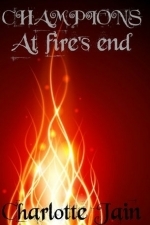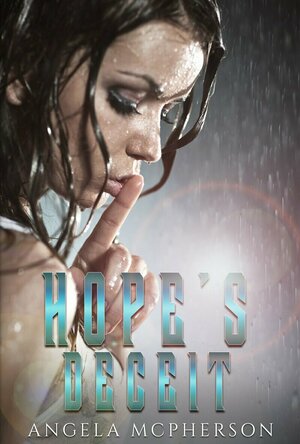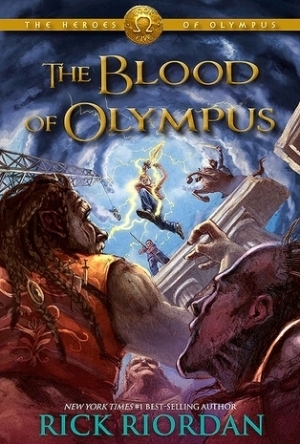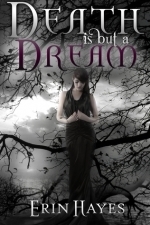Search
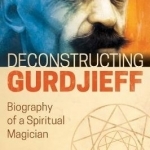
Deconstructing Gurdjieff: Biography of a Spiritual Magician
Book
In November 1949, architect Frank Lloyd Wright announced the death of "the greatest man in the...
Merissa (13765 KP) rated Champions: at fire's end (Champions #1) in Books
Jul 27, 2017
Champions: at fire's end (Champions #1) by Charlotte Jain
Champions: at fire's end is the first book in the Champions series, and we hit the ground running with the first chapter from Hermes' point of view as the scene is set over why the flames are here, and why they will live in children. After that, we jump 18 years to Kyle, the bearer of the blue (water) flame. We find out that he and April (red/fire bearer) have known all along what their purpose in life is, and have Hermes and Themis to guide them. Now, this is where it got a bit confusing for me. It sounded at the beginning that all the flames had to fight each other, with only one winner. Then we find out that Kyle and April are "battle partners". Kyle has the noble notion of finding the other two flames and helping them grow into their powers so that it becomes a fair fight, which still doesn't explain how the pairing is going to work. Kim and Noah are found, but you don't really learn much about them. With different points of view, time disappearing, and honestly not knowing whether Kyle was paired up romantically with either Kim or April at any given time, plus other things, this book quickly became mystifying.
The premise is a good one - after all, who doesn't love a good Greek mythology story in a book? It was the execution of the idea that let it down. I have given this story 3-stars because it was intriguing enough for me to finish it, and I think the premise and the series has a lot of potential. This may be a series where it is in the final book that everything becomes clear. I don't know. What I do know is that this book will appeal to some, and not to others. Personally, I enjoyed it, even if I was a bit lost!
* A copy of this book was provided to me with no requirements for a review. I voluntarily read this book, and my comments here are my honest opinion. *
Merissa
Archaeolibrarian - I Dig Good Books!
The premise is a good one - after all, who doesn't love a good Greek mythology story in a book? It was the execution of the idea that let it down. I have given this story 3-stars because it was intriguing enough for me to finish it, and I think the premise and the series has a lot of potential. This may be a series where it is in the final book that everything becomes clear. I don't know. What I do know is that this book will appeal to some, and not to others. Personally, I enjoyed it, even if I was a bit lost!
* A copy of this book was provided to me with no requirements for a review. I voluntarily read this book, and my comments here are my honest opinion. *
Merissa
Archaeolibrarian - I Dig Good Books!
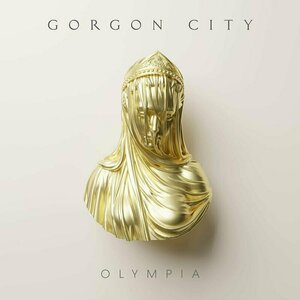
Olympia by Gorgon City
Album
Gorgon City are renowned British production duo Kye Gibbon and Matt Robson-Scott. They are set to...
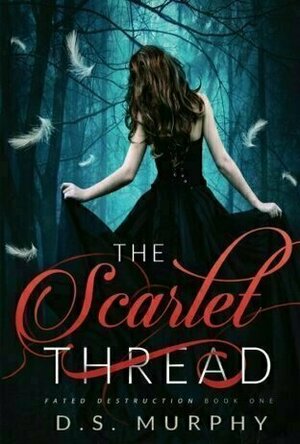
The Scarlet Thread (Fated Destruction, #1)
Book
My name Kaidance Monroe, and sometimes when I touch people, I see how they die. After I saw my...
Merissa (13765 KP) rated Hope's Deceit (The Fated #2) in Books
Apr 25, 2023
The dude is back! Morpheus reigns supreme with his sarcasm and cocky attitude, although you do also see a softer side to him occasionally. As for the rest of the characters, they continue to change and grow with each situation, divulging their secrets and showing strength where none was expected.
Trinity still has her hands full as she tries to learn about her powers and prepares for her eighteenth birthday which is rapidly approaching. Things are not all sunshine and roses with her and Blain - some of which is caused by miscommunication, some by age (she is only 17 after all) and some by circumstances. Every time they were together, my heart was in my mouth! I really want them to be together, but can also understand how the others say that Blain makes her weak. I really hope that she will start to show her true strength now, she has reason enough - and that is all I will say so that I don't give out any spoilers.
The one character I didn't get on with as much in this book is Trinity's dad. He seemed to have whiplash with his emotions and I just couldn't keep up. Still, this is a small thing and also understandable as a father realises he has to let his daughter grow up, even if these circumstances are slightly unusual! 😉
Well-written, fast-paced and chock full of emotion, you will be held prisoner by this book, turning the pages as you immerse yourself within the storyline. With no spelling or grammatical errors that I found, this was an amazing second book and I am now on tenterhooks whilst I wait for the third. If you like Urban Fantasy with a bit of Greek Mythology thrown in, then I can highly recommend this book and the first one in the series. Absolutely fantastic.
* A copy of this book was provided to me with no requirements for a review. I voluntarily read this book, and my comments here are my honest opinion. *
Merissa
Archaeolibrarian - I Dig Good Books!
Nov 13, 2015
Trinity still has her hands full as she tries to learn about her powers and prepares for her eighteenth birthday which is rapidly approaching. Things are not all sunshine and roses with her and Blain - some of which is caused by miscommunication, some by age (she is only 17 after all) and some by circumstances. Every time they were together, my heart was in my mouth! I really want them to be together, but can also understand how the others say that Blain makes her weak. I really hope that she will start to show her true strength now, she has reason enough - and that is all I will say so that I don't give out any spoilers.
The one character I didn't get on with as much in this book is Trinity's dad. He seemed to have whiplash with his emotions and I just couldn't keep up. Still, this is a small thing and also understandable as a father realises he has to let his daughter grow up, even if these circumstances are slightly unusual! 😉
Well-written, fast-paced and chock full of emotion, you will be held prisoner by this book, turning the pages as you immerse yourself within the storyline. With no spelling or grammatical errors that I found, this was an amazing second book and I am now on tenterhooks whilst I wait for the third. If you like Urban Fantasy with a bit of Greek Mythology thrown in, then I can highly recommend this book and the first one in the series. Absolutely fantastic.
* A copy of this book was provided to me with no requirements for a review. I voluntarily read this book, and my comments here are my honest opinion. *
Merissa
Archaeolibrarian - I Dig Good Books!
Nov 13, 2015
EmersonRose (320 KP) rated The Blood of Olympus (The Heroes of Olympus #5) in Books
Nov 20, 2019
Alert! Before I begin this review, I need to let it be known that in the case of this particular book I may be a little biased, well maybe really biased! This is the tenth book I have read by this author and the last in the second series I have read. It is safe to say I love these books or else I would not have read this many.
Alright, now that that is out of the way, let me begin. This book is called Blood of Olympus, it is the fifth and final book in the Heroes of Olympus series (if you should ever desire to read these book, I would recommend starting with the Percy Jackson, and the Olympians series as this series is a sequel series. The author of this book is a writer by the name of Rick Riordan. This book is a young adult fantasy novel. It is the final chapter of the adventure of a group of seven young adults who happen to be demigods, modern day children of the ancient gods of Greece and Rome. This adventure, like many great adventures, is a race to save the world.
For me, the initial draw of the book was that it is a fantasy novel, which is one of my favorite genres, and its focus is on Greek Mythology, something of an obsession of mine. The mythology in these books may not always satisfy all mythology nerds because they do take liberties in how the myths are presented in order to showcase how they might have changed to fit in the modern day world. The way Riordan chooses to represent mythology is often fairly close to original stories, showing that he spends the time researching the myths, and they are clever, funny, and entertaining.
As I read the books, I found myself drawn to the relationships between the characters, not surprising as characters are a key draw for me in literature. By this point in the series, the relationships became especially interesting because you have known some of the characters for ten books now while others are just in their second or third book appearances. The central characters have grown into a substantial group that each have their own unique backgrounds, personalities, and even mythologies that create intriguing tension and bonds. Their bonds grow stronger as they work through new struggles and adventures with the added drama of them being a group of teenagers, which obviously means that there is a fair bit of romance involved as well.
For me personally to get into a story the most important aspect is to be very invested in61w3pqVMCZL._US230_ the characters. This does not mean I have to like them, but I do need to be completely invested in what happens to them. If the storyteller can do this, then I will most likely binge the entire thing whether book, movie, tv show, comic…. regardless whether or not the story is good or my normal cup of tea. This was definitely an initial draw in me reading this second series because I was already very invested in both Percy and Annabeth’s characters, who are among the main characters in this series and the main characters in the previous series. The majority of the characters in this book did capture my emotional investment, which kept me reading all five books, but there were a few I found lacking. Maybe I am the only one who felt this, but I thought that Riordan didn’t spend enough time on some of the new characters to pull me into their plots. Unfortunately, this is common in stories that feature such a large cast of main characters, had the time on each character been even plot points might not have been as successful and honestly, I might have been annoyed to not spend as much time on my favorites.
I would be lying if I were to say this was my favorite book in this series but I still greatly enjoyed it. Besides my problem with not feeling emotionally invested enough in some of the characters, I really do not have any other complaints about the book. It was successful in finishing this series story arc while having plenty of plot of its own. And it ended wrapping just about everything up so that I was satisfied, but open enough to still want more. If this were a regular series, the leftover cliffhangers would be dreadful! But Riordan writes series that capture over-arching plots but that connect to his other book series in this same world, so an ending like this simply promising more books about these characters in another series.
Overall I liked this book, if young adult fantasy is your genre, then I would definitely suggest looking at these books. They do what I require of my urban fantasy stories, mix magic into our real world enough that a part of me can almost believe it could be possible. Characters, world, and plot flowing together into an engaging story that obviously captured my interest enough to read ten and counting of these novels.
*This was a review I found while cleaning that I write a few years ago. I have since read two more Riordan novels and counting! I love the way Riordan writes and appreciate how he seems to continually grow as a writer, always tackling new issues and allowing his characters to have growth. Annabeth and Percy especially, they are two of my all-time favorite characters. I highly recommend reading his books!
Alright, now that that is out of the way, let me begin. This book is called Blood of Olympus, it is the fifth and final book in the Heroes of Olympus series (if you should ever desire to read these book, I would recommend starting with the Percy Jackson, and the Olympians series as this series is a sequel series. The author of this book is a writer by the name of Rick Riordan. This book is a young adult fantasy novel. It is the final chapter of the adventure of a group of seven young adults who happen to be demigods, modern day children of the ancient gods of Greece and Rome. This adventure, like many great adventures, is a race to save the world.
For me, the initial draw of the book was that it is a fantasy novel, which is one of my favorite genres, and its focus is on Greek Mythology, something of an obsession of mine. The mythology in these books may not always satisfy all mythology nerds because they do take liberties in how the myths are presented in order to showcase how they might have changed to fit in the modern day world. The way Riordan chooses to represent mythology is often fairly close to original stories, showing that he spends the time researching the myths, and they are clever, funny, and entertaining.
As I read the books, I found myself drawn to the relationships between the characters, not surprising as characters are a key draw for me in literature. By this point in the series, the relationships became especially interesting because you have known some of the characters for ten books now while others are just in their second or third book appearances. The central characters have grown into a substantial group that each have their own unique backgrounds, personalities, and even mythologies that create intriguing tension and bonds. Their bonds grow stronger as they work through new struggles and adventures with the added drama of them being a group of teenagers, which obviously means that there is a fair bit of romance involved as well.
For me personally to get into a story the most important aspect is to be very invested in61w3pqVMCZL._US230_ the characters. This does not mean I have to like them, but I do need to be completely invested in what happens to them. If the storyteller can do this, then I will most likely binge the entire thing whether book, movie, tv show, comic…. regardless whether or not the story is good or my normal cup of tea. This was definitely an initial draw in me reading this second series because I was already very invested in both Percy and Annabeth’s characters, who are among the main characters in this series and the main characters in the previous series. The majority of the characters in this book did capture my emotional investment, which kept me reading all five books, but there were a few I found lacking. Maybe I am the only one who felt this, but I thought that Riordan didn’t spend enough time on some of the new characters to pull me into their plots. Unfortunately, this is common in stories that feature such a large cast of main characters, had the time on each character been even plot points might not have been as successful and honestly, I might have been annoyed to not spend as much time on my favorites.
I would be lying if I were to say this was my favorite book in this series but I still greatly enjoyed it. Besides my problem with not feeling emotionally invested enough in some of the characters, I really do not have any other complaints about the book. It was successful in finishing this series story arc while having plenty of plot of its own. And it ended wrapping just about everything up so that I was satisfied, but open enough to still want more. If this were a regular series, the leftover cliffhangers would be dreadful! But Riordan writes series that capture over-arching plots but that connect to his other book series in this same world, so an ending like this simply promising more books about these characters in another series.
Overall I liked this book, if young adult fantasy is your genre, then I would definitely suggest looking at these books. They do what I require of my urban fantasy stories, mix magic into our real world enough that a part of me can almost believe it could be possible. Characters, world, and plot flowing together into an engaging story that obviously captured my interest enough to read ten and counting of these novels.
*This was a review I found while cleaning that I write a few years ago. I have since read two more Riordan novels and counting! I love the way Riordan writes and appreciate how he seems to continually grow as a writer, always tackling new issues and allowing his characters to have growth. Annabeth and Percy especially, they are two of my all-time favorite characters. I highly recommend reading his books!
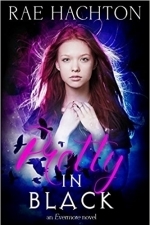
Pretty in Black: Pretty in Black Book 1
Book
On the day of her death, a seventeen year old cheerleader meets a vampire in the cemetery who saves...
fantasy young adult
Annie Chanse (15 KP) rated Death is but a Dream in Books
Dec 19, 2017
Contains spoilers, click to show
*contains spoilers*
A police detective -- Callista, Callie for short -- saves a little girl from getting hit by a bus. She, herself, is then hit instead. She wakes up to find herself in the Underworld where she is taken before Hades and offered a deal. Protect his son, Plutus, and find out who wants him dead, and Hades will restore her to life. However, if Callie fails in her objective or dies while in the Underworld, she will die an eternal death, and her soul will never be allowed to have an afterlife.
It doesn't seem like a super great choice, but when a god offers you a deal, the "offering" part is really just a polite term to cover up the fact that you are going to do what that god wants you to do or your screwed. And so Callie has little choice but to accept Hades' offer. She meets several interesting characters along the way, including one of the Furies, Tisiphone, who becomes Callie's friend and ally in the Underworld.
Callie's job is complicated, however, by the fact that Hades forbids her to interview, interrogate, or even outwardly suspect any of his royal family of trying to kill his son, and even FURTHER complicated by the fact that Hades lies to her and manipulates her at every turn.
"Death is but a Dream" is a beautiful and original story of the Olympian gods, and it is quite unique in its view of Greek mythology. Perhaps the closest comparison I can make to a book/series already out there in the market is with Amber Benson's series that starts with "Death's Daughter." (I'm sorry. I can't actually remember what the series is called as a whole.) It has the same tone. Both feature strong, independent female protagonists who are thrown into a fantastical world that they want no part of, so yes, fans of Amber Benson's work will really enjoy this book, I think.
The only complaint I have is that the book could have benefited from some series editing. I had an e-book copy of the novel, and there were quite a few more errors than I would expect a published, completed book to have. Most of the errors were inconsequential -- missing commas, wrong words, etc. -- and could be easily overlooked or fixed by the reader simply inserting the correct word while reading, but still, a polished book should be as free of errors as is possible, and this book had a good number.
I still really, really enjoyed the book, though. I highly recommend it.
A police detective -- Callista, Callie for short -- saves a little girl from getting hit by a bus. She, herself, is then hit instead. She wakes up to find herself in the Underworld where she is taken before Hades and offered a deal. Protect his son, Plutus, and find out who wants him dead, and Hades will restore her to life. However, if Callie fails in her objective or dies while in the Underworld, she will die an eternal death, and her soul will never be allowed to have an afterlife.
It doesn't seem like a super great choice, but when a god offers you a deal, the "offering" part is really just a polite term to cover up the fact that you are going to do what that god wants you to do or your screwed. And so Callie has little choice but to accept Hades' offer. She meets several interesting characters along the way, including one of the Furies, Tisiphone, who becomes Callie's friend and ally in the Underworld.
Callie's job is complicated, however, by the fact that Hades forbids her to interview, interrogate, or even outwardly suspect any of his royal family of trying to kill his son, and even FURTHER complicated by the fact that Hades lies to her and manipulates her at every turn.
"Death is but a Dream" is a beautiful and original story of the Olympian gods, and it is quite unique in its view of Greek mythology. Perhaps the closest comparison I can make to a book/series already out there in the market is with Amber Benson's series that starts with "Death's Daughter." (I'm sorry. I can't actually remember what the series is called as a whole.) It has the same tone. Both feature strong, independent female protagonists who are thrown into a fantastical world that they want no part of, so yes, fans of Amber Benson's work will really enjoy this book, I think.
The only complaint I have is that the book could have benefited from some series editing. I had an e-book copy of the novel, and there were quite a few more errors than I would expect a published, completed book to have. Most of the errors were inconsequential -- missing commas, wrong words, etc. -- and could be easily overlooked or fixed by the reader simply inserting the correct word while reading, but still, a polished book should be as free of errors as is possible, and this book had a good number.
I still really, really enjoyed the book, though. I highly recommend it.
Rachel King (13 KP) rated River Marked (Mercy Thompson, #6) in Books
Feb 11, 2019
This book takes a different direction than previous books in the series, because Mercy is doing something that I think is quite rare in the typical Urban Fantasy heroine -- she is getting married. As a married woman, I quite like this turn and the extra confidence and sense of permanence it gives Mercy, but I don't think this is something that every reader will fully appreciate. Still, it feels fresh and new to me, and I think it has the potential to "breathe new life" into the series.
The loose ends of Stefan's mess from the previous book are quickly tied up, and the plot swiftly moves on to a "surprise" wedding for Mercy. The set-up of the wedding was quite endearing, and I even teared up a bit over it. These two sub-plots take place rather quickly, though, as the main focus of the book is what occurs during Mercy and Adam's honeymoon.
Mercy figures out quickly that they have been set up by certain fairy acquaintances for reasons that no one really knows. I was laughing at this, as it feels like a bumper sticker motto: If the world needs saving - send Mercy! So of course, Urban Fantasy heroine Mercy does not get a typical honeymoon, but one fraught with peril and impending doom.
While it may seem on the surface to be a random way to introduce new characters and magical elements into the series, I think that the events that happened at the Columbia River were a great way to focus on Mercy's native heritage and answer many of the questions that I have been harboring through the series about her ability to transform into a coyote. She makes some new friends of native descent that are able to help her tackle her looming battle with the river monster, and she discovers that she is not the only native who can become another animal. She also learns more about her father and his relationship with her mother. The walking stick also plays a major part, though I hope this is not the last we've seen of it. That stick has too many quirks to just let it go.
The river monster itself was quite a creation - as much fantasy as I have read, I've never come across anything quite like it, though some creatures of Greek mythology comes close. Abominations like that remind me why I avoid watching horror movies. The behavior of the otterkin also reminded me of the way members of a cult exalt their leader - creepy. I can't wait for the next book!
The loose ends of Stefan's mess from the previous book are quickly tied up, and the plot swiftly moves on to a "surprise" wedding for Mercy. The set-up of the wedding was quite endearing, and I even teared up a bit over it. These two sub-plots take place rather quickly, though, as the main focus of the book is what occurs during Mercy and Adam's honeymoon.
Mercy figures out quickly that they have been set up by certain fairy acquaintances for reasons that no one really knows. I was laughing at this, as it feels like a bumper sticker motto: If the world needs saving - send Mercy! So of course, Urban Fantasy heroine Mercy does not get a typical honeymoon, but one fraught with peril and impending doom.
While it may seem on the surface to be a random way to introduce new characters and magical elements into the series, I think that the events that happened at the Columbia River were a great way to focus on Mercy's native heritage and answer many of the questions that I have been harboring through the series about her ability to transform into a coyote. She makes some new friends of native descent that are able to help her tackle her looming battle with the river monster, and she discovers that she is not the only native who can become another animal. She also learns more about her father and his relationship with her mother. The walking stick also plays a major part, though I hope this is not the last we've seen of it. That stick has too many quirks to just let it go.
The river monster itself was quite a creation - as much fantasy as I have read, I've never come across anything quite like it, though some creatures of Greek mythology comes close. Abominations like that remind me why I avoid watching horror movies. The behavior of the otterkin also reminded me of the way members of a cult exalt their leader - creepy. I can't wait for the next book!
Sophia (Bookwyrming Thoughts) (530 KP) rated Morrigan in Books
Jan 23, 2020
Original Review Posted on <a href="http://bookwyrming-thoughts.blogspot.com/2013/02/blog-tour-morrigan-by-laura-deluca-review-and-guest-post.html">Bookwyrming Thoughts</a>.
Note: Formatting has been lost due to copy and pasting.
<i><b>Disclaimer:</b> I received this book from YANR Blog Tours for free in exchange for an honest for the blog tour. This does not influence my review in any way.</i>
I think 3 words grabbed my attention: Tir na NOg. Only because the place was familiar from another series (I'll leave it for you guys to ponder on that). Okay, not just Tir na NOg. The blurb grabbed me as well. *o* So with that concept, I thought it might have something to do with faeries and would you be glad to know I was wrong.
I haven't read anything about Celtic mythology, or any books about it (I usually stick to Greek and Roman myths...), so Morrigan was made much more interesting to read knowing that fact. I love the fact that the author placed a glossary at the very beginning of the book - it was very helpful (hey, I'm pretty sure I'll be pronouncing everything foreign-like wrong in the end anyways, regardless of glossary there or not. But I'm sure it'll be helpful for the majority of us).
Here, we have a girl named Morrigan, who's an orphan and moving from home to home constantly. Until one day, she finds out her world isn't what it seems... AND she's different than what she thought she was. She can control fire, read the future (at least a glimpse), and move things... with her mind.
I find Morrigan an enchanting read. Like any fantasy book, we enter a different world that's "parallel" to our modern day world. I love the way Tiarn reacts to Morrigan's technological knowledge/use of modern items in Tir na NOg. However, I did find some things a bit confusing and didn't really make sense. I also loved the choice of words, especially in transitions.
I also loved the way the villains are formed. The author is descriptive and detailed with them (trust me... I had the shudders. No Nightmares though). Just when you think someone is a villain, it ends up being another... (which is a good thing, in my humble opinion). I'm also curious if there's going to be a sequel... due to the way the book ends. ;)
By the way, just because there's a werewolf, does not mean this story is going to be Twilight fashioned. It's not. ;)
Note: Formatting has been lost due to copy and pasting.
<i><b>Disclaimer:</b> I received this book from YANR Blog Tours for free in exchange for an honest for the blog tour. This does not influence my review in any way.</i>
I think 3 words grabbed my attention: Tir na NOg. Only because the place was familiar from another series (I'll leave it for you guys to ponder on that). Okay, not just Tir na NOg. The blurb grabbed me as well. *o* So with that concept, I thought it might have something to do with faeries and would you be glad to know I was wrong.
I haven't read anything about Celtic mythology, or any books about it (I usually stick to Greek and Roman myths...), so Morrigan was made much more interesting to read knowing that fact. I love the fact that the author placed a glossary at the very beginning of the book - it was very helpful (hey, I'm pretty sure I'll be pronouncing everything foreign-like wrong in the end anyways, regardless of glossary there or not. But I'm sure it'll be helpful for the majority of us).
Here, we have a girl named Morrigan, who's an orphan and moving from home to home constantly. Until one day, she finds out her world isn't what it seems... AND she's different than what she thought she was. She can control fire, read the future (at least a glimpse), and move things... with her mind.
I find Morrigan an enchanting read. Like any fantasy book, we enter a different world that's "parallel" to our modern day world. I love the way Tiarn reacts to Morrigan's technological knowledge/use of modern items in Tir na NOg. However, I did find some things a bit confusing and didn't really make sense. I also loved the choice of words, especially in transitions.
I also loved the way the villains are formed. The author is descriptive and detailed with them (trust me... I had the shudders. No Nightmares though). Just when you think someone is a villain, it ends up being another... (which is a good thing, in my humble opinion). I'm also curious if there's going to be a sequel... due to the way the book ends. ;)
By the way, just because there's a werewolf, does not mean this story is going to be Twilight fashioned. It's not. ;)
